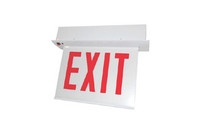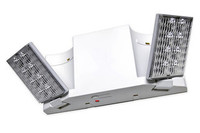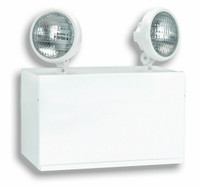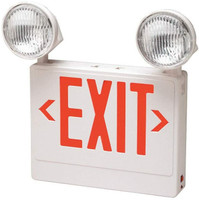-

Barron Lighting Group LED-60 LED-60 Thermoplastic Series
Barron Lighting Group
-

Barron Lighting Group LED-60-BL LED-60 Thermoplastic Series
Barron Lighting Group
-
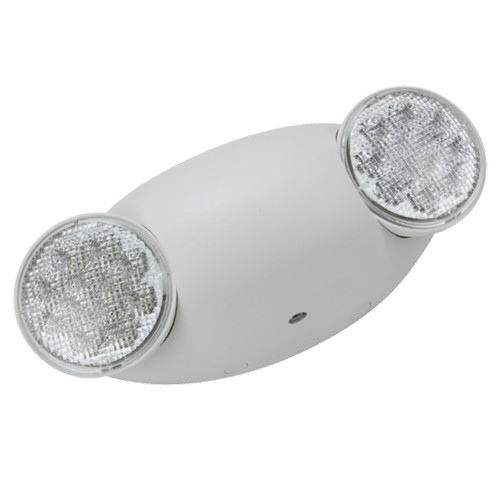
Barron Lighting Group LED-95-BL LED-95 Series Thermoplastic LED Emergency Lighting Unit
Barron Lighting Group
-

-

-

Barron Lighting Group LED-95-WH LED-95 Series Thermoplastic LED Emergency Lighting Unit
Barron Lighting Group
-
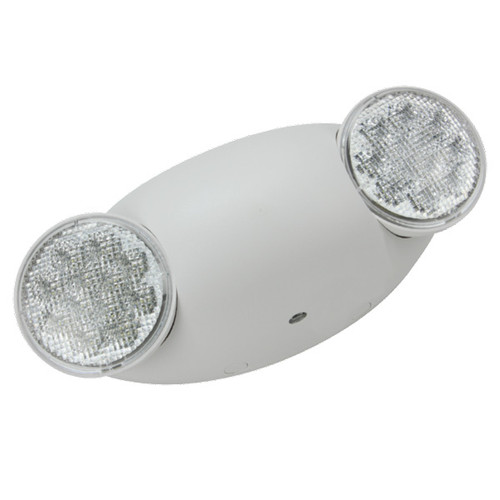
-
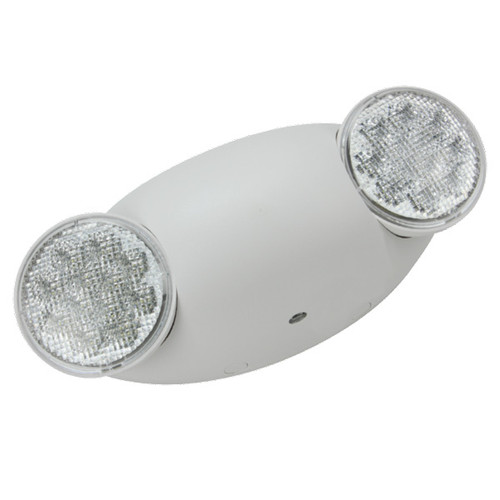
-
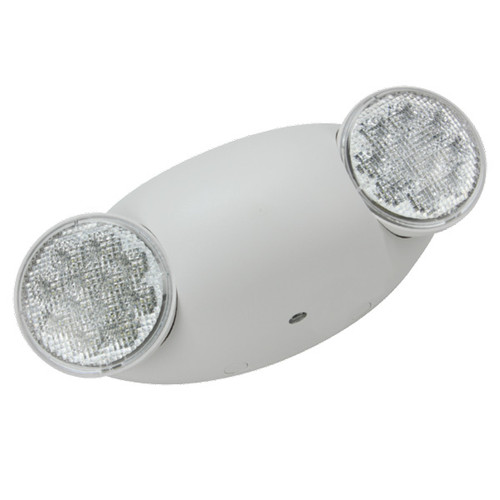
-

Barron Lighting Group LEM54-N4-WH LEM54 Weatherproof Thermoplastic Series
Barron Lighting Group
-

-

Emergency Lights & Exit Signs
Emergency lighting is required in all nonresidential buildings. There are numerous versions of building codes and various editions of these building codes in use around the country.
Emergency lighting is required to illuminate building areas when things go wrong—for example, when the normal electrical supply is interrupted by a utility outage or by a fire or failure within the building. In most facilities, the largest part of emergency illumination lights the pathways and exits that lead out of the building—the egress paths. Its intent is to facilitate evacuation of the facility, particularly in the event of a fire, and to reduce the tendency of occupants to panic under stress, and in the dark.
Because the performance of emergency lighting is directly related to life safety, code officials are notoriously demanding of strict compliance in its design and installation. Differing interpretations about emergency lighting requirements easily can lead to a costly delay of occupancy. A clear understanding of the code requirements for emergency lighting, and a clear understanding of code officials’ views of any issues that admit interpretation, will go a long way toward avoiding expensive and embarrassing surprises late in construction.
The term “emergency lighting” appears frequently in the codes, but it is nowhere directly defined. For the purposes of this article, emergency lighting refers to lighting equipment that is specifically identified as such in one of the codes, with limited exception. Certain lighting that must illuminate under emergency conditions in health care facilities, but is not technically defined as emergency lighting, is addressed separately.
Employee Safety Requirements - Emergency Lighting
Emergency lighting is installed in such a manner so as to guide workers safely toward the exit of a building. Depending on the nature of the building and the potential hazards and obstacles that could interfere with a worker's ability to make a safe exit, this could involve using lights to highlight the exit or to provide low levels of illumination throughout the building. In certain occupational situations, such as in commercial aircraft, floor-level emergency lights may be used to help guide individuals toward an exit.
In the United States, OSHA recognizes the National Fire Protection Association Life Safety Code (101) standards for emergency lighting as providing instructions for how employers can meet their general duty requirements for ensuring a safe workplace. These standards require that all exit routes, including aisles, corridors, and the like, have emergency lighting.
OSHA standard 1910.34 describes an exit route as a “continuous and unobstructed path of exit travel from any point within a workplace to a place of safety (including refuge areas).” In the event of an outage, emergency lighting must activate automatically during a power failure and must be able to last for at least 90 minutes. OSHA and NFPA codes also prescribe regular maintenance and testing of emergency lighting requirements, including a monthly inspection and annual test per NFPA 101, to ensure that they remain in proper working order.
Emergency lighting codes also specify that exit signs must remain illuminated in the case of a power failure, either by external emergency lighting or by an emergency light source that is intrinsic to the sign itself. In some cases, this lighting may be provided by non-battery sources such as photoluminescence (glow in the dark).
Emergency lighting in workplaces is a topic for which standards from numerous non-occupational regulatory agencies must be taken into consideration. In addition to NFPA codes, there are local building codes, the International Building Code, and International Fire Code standards that should be accounted for by the persons responsible for ensuring safety in their workplace.
Exit & Emergency Sign Locations for Commercial Properties
NFPA 101 requires emergency egress lighting in exit accesses, at exits, and at exit discharges. For this purpose, the term “exit access” denotes only designated stairs, corridors, ramps, escalators, and passageways leading to an exit. “Exit discharge” denotes similar designated building components leading to a public way. In a typical design project, these building components are designated by the architect and indicated in the life safety plans. When those plans are not available early in the design process, the designer can get very close to compliant egress lighting by providing emergency lighting in corridors, stairways, at exits, and immediately outside exits.
Big Beam Emergency Lighting
Big Beam has been manufacturing emergency exit lights in Chicago, IL since 1938. We are a full line manufacturer of commercial and industrial UL 924 emergency exit lights. With over 75 years of experience as manufacturers of emergency exit lights, Big Beam offers more solutions to life safety lighting than other manufacturer. We offer a full spectrum of emergency exit lights from commercial to industrial emergency lighting products. You are sure to find a Big Beam product for virtually any application requiring an emergency exit light.
Big Beam Emergency Lighting Distributor
The 4X series is an Exit and Emergency Combination Fixture suitable for NEMA 1, 2, 3, 3R, 4 & 4X applications. Hazardous option available
Need to customize the E4XL1RW NEMA Exit Combo specifications? Customize the 4XL
Build the 4X NEMA Exit Sign/Combo to your specifications
Attention: Depending on the product options you selected this item may need to be quoted to get a final price. We will contact you before processing the order if there is a price change.
Big Beam Emergency Lighting - 4X NEMA Exit Sign/Combo product variations:
Top-Rated Emergency Light & Exit Sign Distributor & Supplier
Lightingandsupplies.com is a lighting distributor of Indoor & Outdoor Commercial and Residential light fixtures and light bulbs. Based in the US, we carry the top LED lighting brands like EiKO, RAB Lighting, MaxLite, naturaLED, Westgate Lighting and more of the Top Lighting Manufacturers in the United States. We also carry a wide variety of Horticulture products by Hydrofarm, along with ceiling fans by RP Lighting+Fans. Lightingandsupplies.com also provides rebate programs, expert lighting design advice, and lighting audits for large projects. As a wholesaler, authorized dealer and bulk distributor of lighting products, we take pride in our customer-focused 100% satisfaction guarantee and return policy.
For more information, call 888-325-4448 or email: [email protected].

